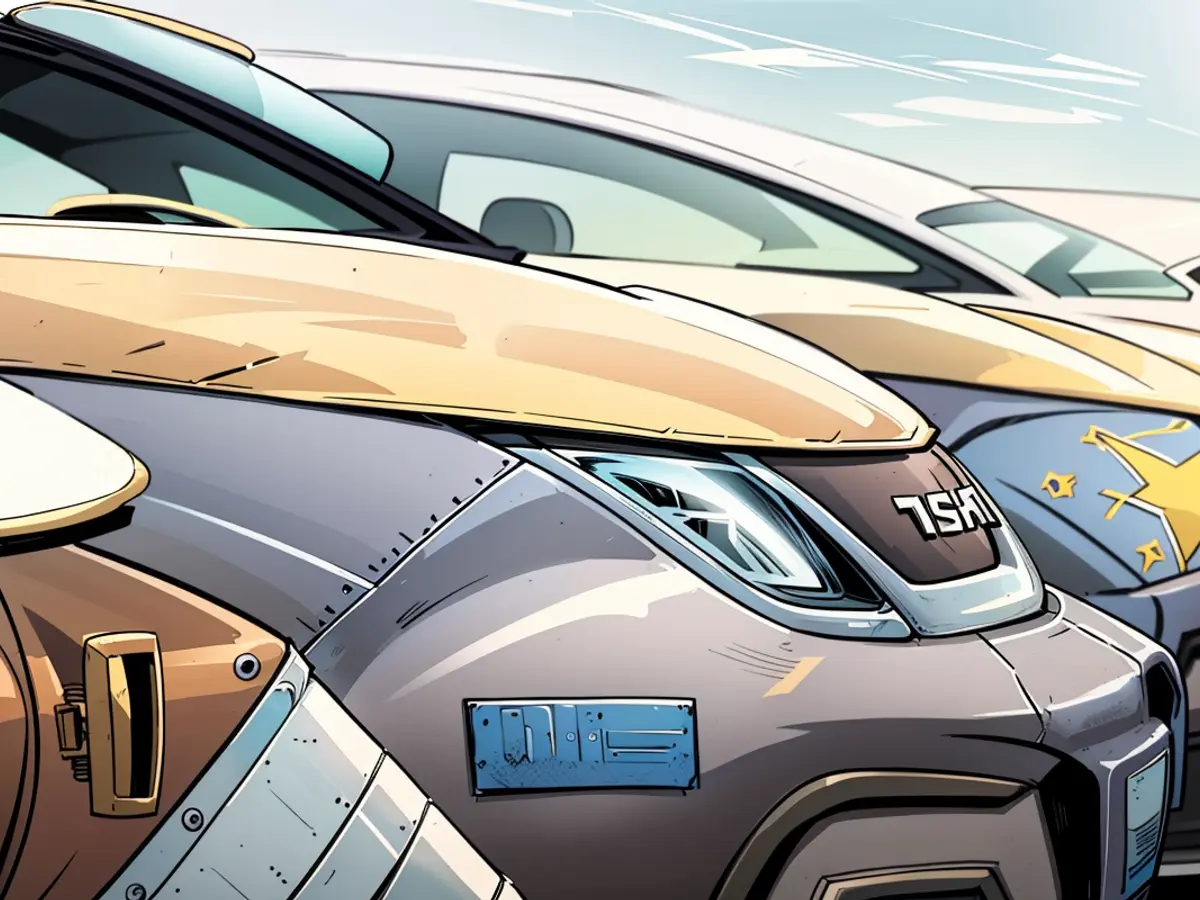German auto industry insists on reversal of current policies
On a Wednesday, the EU Commission declared penalties towards imported electric cars from China due to accusations of competition manipulation. The German automotive sector foresees potential major harm to Europe's economy. Other economic associations view the situation as less troubling.
The German automotive sector is optimistic that the announced higher EU tariffs on Chinese electric cars might still be averted through dialogue. "We hope the EU Commission and China will resolve their differences through talks," said Andreas Rade, head of the Association of the German Automotive Industry (VDA), to "Wirtschaftswoche". "We can't afford a price war which would negatively impact other markets as well."
It's not just about the automotive sector, Rade emphasized. "Such a move would badly damage the export-oriented European economic region." Additionally, tariffs on electric cars would lift their overall costs. "What we need is the opposite."
The EU Commission announced increased tariffs on electric cars manufactured in China on a Wednesday. The reasoning behind this is claims that Chinese manufacturers receive extensive subsidies at the expense of European manufacturers. However, the EU Commission has provided Chinese authorities and companies with a reprieve: negotiations with Chinese authorities and companies are to take place at the start of July, and the new tariffs will be implemented later.
Acclaim from Industry and Academia
The German automotive sector has a significant presence in China and is concerned about EU tariffs on Chinese cars. Two main concerns arise: Chinese authorities could respond with countermeasures, and cars produced by German manufacturers in China would be subject to higher import tariffs. The federal government is against the tariff increases.
However, in other German industries, the Brussels announcement is viewed much less negatively. The Federation of German Industries (BDI) expressed sympathy: China had violated WTO rules regarding competition. It was right for the EU Commission to "consistently utilize its defensive instruments."
Economist Moritz Schularick applauded the Brussels announcement, stating that it demonstrated "the European Union's resolve to maintain fair competition conditions on the European market." In light of the projected rise in electric car prices, it was crucial to find the right equilibrium between fair competition and fostering green technologies, explained the President of the Kiel Institute for Economic Research. Furthermore, "it is essential that Europe acts in unison in this matter and does not split apart."
Read also:
Despite the German car industry's hopes for dialogue to avert punitive tariffs on Chinese electric cars, German automakers could face significant challenges if these tariffs are implemented. The Chinese automotive sector might retaliate with countermeasures, affecting German carmakers' operations in China, and cars manufactured by German companies in China would be subject to higher import tariffs in Europe.
German carmakers, such as BMW, Mercedes-Benz, and Audi, are heavily invested in the Chinese market and could be negatively impacted by potential punitive tariffs. These tariffs could increase the overall cost of electric cars, hindering the growth of the electric vehicle market in Europe and potentially shifting the focus towards Chinese electric vehicle manufacturers.








